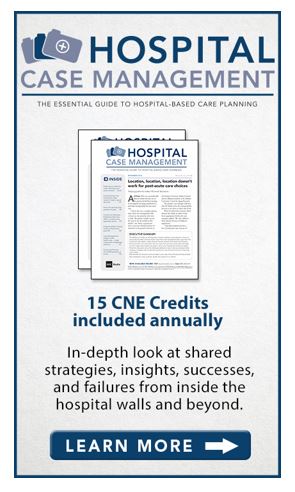Dividing 30-Day Readmission Rate Allows More Accurate Assessment
October 12th, 2016
BOSTON – Just because 30-day readmission rates have become a federal quality metric for inpatient quality of care and unnecessary healthcare utilization doesn’t mean they are always the best measure.
In fact, a new study published in the Annals of Internal Medicine suggests two quality metrics for readmissions – 8-day and 30-day. That way, according to researchers from Beth Israel Deaconess Medical Center, the parameters would take into account how risk factors for readmission change significantly over the course of the month following hospital discharge.
To determine that, the researchers reviewed more than 13,000 discharges involving more than 8,000 patients in 2009 and 2010. They found that early readmissions – defined as 0-7 days post discharge -- were associated with markers of the acute illness managed during initial hospitalization, while chronic illness was more important in predicting late readmissions, defined as 8-30 days post discharge.

"Our research found that risk factors for readmission evolved during the first 30 days following hospital discharge," said lead author Kelly L. Graham, MD, MPH, a physician at Beth Israel Deaconess and an instructor at Harvard Medical School. "Readmissions in the first week were more highly associated with factors related to the initial hospitalization than later readmissions. These findings suggest that the standard 30-day metric does not accurately reflect hospitals' accountability for readmissions."
Discharging patients earlier in the day, between 8 a.m. and 12:59 p.m., lowered the odds of an early readmission, according to the researchers, who suggest that time window gives patients and their families more opportunity to access community resources such as pharmacies and social support.
Low health literacy was linked to both early and late readmissions, while patients with unsupplemented Medicare or Medicaid were more likely to be readmitted eight days or more after discharge.
"The growing movement toward accountable care organizations and patient-centered medical homes may prove beneficial in preventing unnecessary hospital readmissions," Graham added. "Patients discharged from the hospital need support from and teamwork among hospitalists, primary care physicians, nurse practitioners, visiting nurses, pharmacists and others."
The study calls for better post-discharge monitoring to help patients transition from hospital to outpatient primary care.

